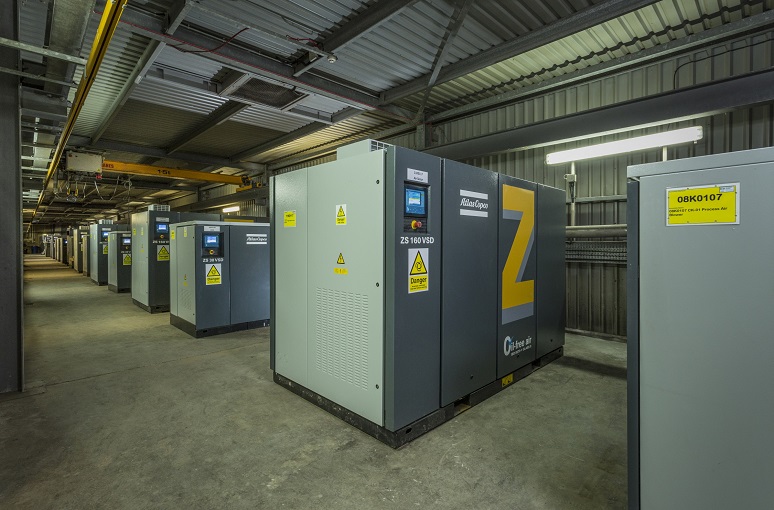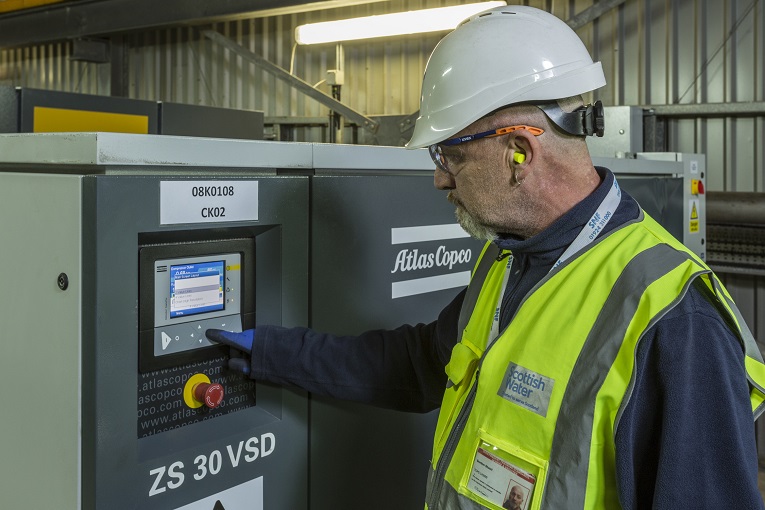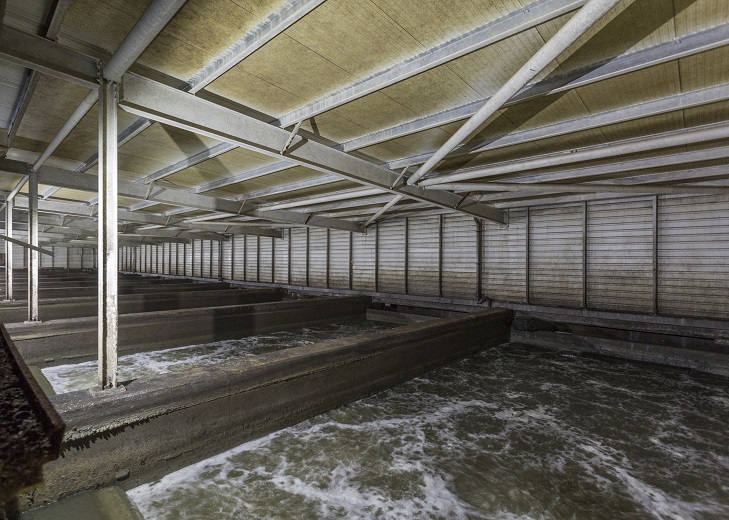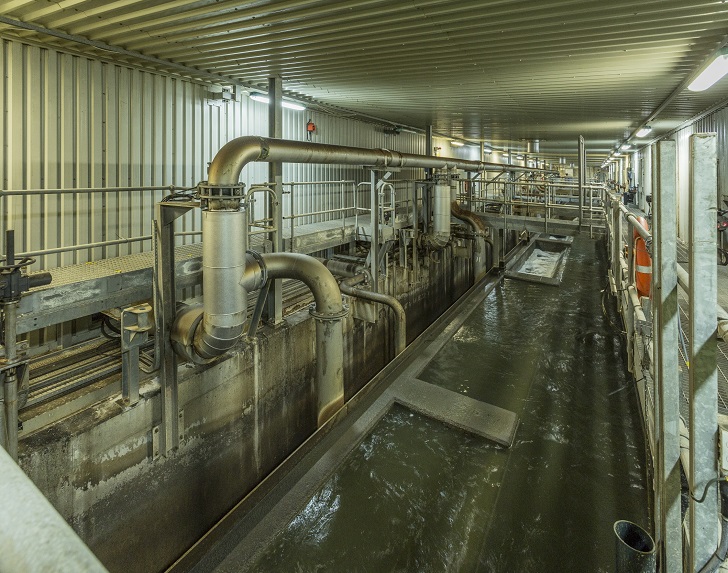



At a Scottish wastewater treatment works, lobe air blowers in its biological air flooded filter required constant attention and maintenance. Replacement units in the shape of VSD, low-pressure, rotary screw blowers from Atlas Copco provided the solution.
By replacing its traditional lobe air blowers with modern VSD rotary screw blowers, Scottish Water's Nigg wastewater treatment works now achieves continuous, uninterrupted operation. The reduced maintenance programme has led to energy cost savings of up to 25% − plus the potential for further savings when the system is fully optimised.
The Nigg wastewater treatment works, located to the south-east of the City of Aberdeen on the shore of Nigg Bay, serves a population of 250,000. It is operated by Scottish Water Services (Grampian), who have a 28-year design, build, finance and operation contract with Scottish Water to operate and maintain four wastewater treatment plants serving the northeast of Scotland. In addition to treating wastewater, the company operates sludge treatment facilities which treat indigenous sludge and can receive additional imported sludge and liquid wastes.
Lobe air blowers Like many similar sites, the Nigg plant had been operating traditional lobe air blowers for the critical aeration processes in its biological air flooded filter (BAFF). In the process, a constant flow of low-pressure air is supplied by the blowers to BAFF media at the base of treatment tanks. This provides the oxygen required to sustain the organic bacteria that is treating the wastewater with each cell air scoured and back-washed once per day.
Blowers of the type in operation at the Nigg plant have been a constant area of concern and attention for the site maintenance team. Graham Ellis, asset manager of Scottish Water Services, was concerned that the 19 roots-type lobe blowers required intense levels of maintenance and were frequently unable to operate at the upper end of their performance range. There was also a high incidence of air and oil leakage to deal with overall. With many of the blowers running 24/7, the BAFF process represents a significant share of the Nigg plant's total energy consumption.
To remedy the situation Ellis and the management team undertook an asset-liability review to determine the equipment replacement options currently available to them. Starting off with seven blower providers, they went through an elimination process, based on available technology. An energy study was undertaken to see who had the most energy-efficient and cost-effective solution to meet their needs. At this point, it was decided to switch from roots blowers to screw blowers.
Integrated package The replacement units are VSD, low-pressure, rotary screw blowers. Each comprises a complete, fully integrated package based on a simple internal principle: precision timing gears maintain minute clearances between two intermeshing dry screw elements that never touch. No lubrication is required in the compression space, and special seals stop any rotor bearing oil from entering the compression chamber.
Intake air is compressed between the rotors and their housing and oil-free, pulsation-free air at a pressure band between 700-800 mbar is delivered at an output rate of up to 2272 m3/h dependent upon process demand.
The plant’s original 19 blowers of four sizes were reduced to 17 screw blowers of similar size. This comprised 11 x 30 kW machines and 6 x 160 kW units, all of which feature built-in inverter drives and control and regulation systems to maximise performance under a variety of conditions. The reduction in the number of blower units has been enabled by the ability to use the extra capacity per blower and wide turndown function to match process demands.
The phased installation and commissioning programme took place over six months. When taken offline, a wastewater treatment cell needs from 12-18 hours to restore its operation. As a result, each of the 20 cells had to be taken offline individually, in sequence, with the backup blower utilised to minimise the risk to the technically sensitive process.
Interruptions reduced Scottish Water was pleased that the planned process interruption was limited to just a half-day per cell. As of now, the site is reporting around 25% energy savings in aeration, with potential for further savings through DO (dissolved oxygen) control process optimisation. This is made possible by the screw blowers’ turndown capabilities and superior internal air compression.
The change has also enabled the Nigg plant to fully integrate all seventeen blowers into its SCADA system via Modbus protocols. Such integration, along with built-in independent individual control systems, provides for full control and monitoring via SCADA, as well as for an emergency protocol for when those signals are lost. This ensures that every single blower can operate completely independently and could always revert to a pre-programmed operating point in case of primary signal loss.
Before this successful upgrade project work was carried out, regular blower failures meant the Nigg plant was experiencing unacceptable process and compliance risks. Now, it can operate reliably at the plant's design capacity while also using less energy. Furthermore, it has gone from having to spend an average of 14 hours a week maintaining the blowers to just carrying out daily checks within its supplier service contract – a total responsibility plan that ensures maximum uptime.





